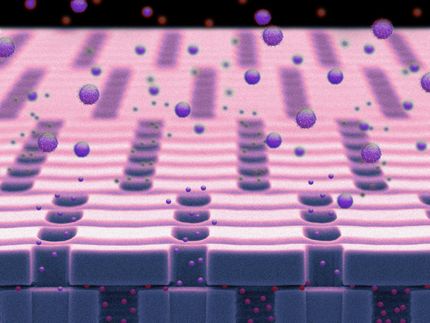Gilead completes Phase II Clinical Trial of Novel Investigational HIV Integrase Inhibitor GS 9137
Study Meets Primary Endpoint of Non-inferiority
Advertisement
Gilead Sciences, Inc. announced the completion of a Phase II clinical trial of GS 9137, a novel oral HIV integrase inhibitor. The clinical study met its primary endpoint of non-inferiority in viral load reduction in HIV-positive patients receiving 50 mg or 125 mg of GS 9137 once daily, each boosted with 100 mg of ritonavir, in combination with an optimized background antiretroviral regimen compared to a boosted comparator protease inhibitor regimen (p=0.02 for the 125 mg arm).
This ongoing Phase II study is a partially-blinded, randomized, active-controlled, 48-week clinical trial to evaluate the non-inferiority of once-daily GS 9137 versus boosted comparator protease inhibitors (CPI/r) in highly treatment-experienced HIV-infected patients. After week eight, the GS 9137 20 mg arm was closed due to a high rate of virologic failure. At this time, the addition of darunavir or tipranavir to the GS 9137 study arms was permitted, following the availability of data demonstrating a lack of drug interactions between both protease inhibitors and GS 9137. The primary endpoint of the study was DAVG24, a measure of viral load reduction over 24 weeks.
Integrase inhibitors are an investigational class of antiretrovirals that interfere with HIV replication by blocking the ability of the virus to integrate into the genetic material of human cells. Novel classes of HIV-fighting drugs are needed as patients live longer and exhaust currently available treatment options.
GS 9137, also known as JTK-303, was licensed by Gilead from Japan Tobacco Inc. (JT) in March 2005. Under the terms of the company's agreement with JT, Gilead has exclusive rights to develop and commercialize GS 9137 in all countries of the world, excluding Japan where JT retains rights. As an investigational compound, GS 9137 has not yet been determined safe or efficacious in humans for its ultimate intended use.
Most read news
Organizations
Other news from the department research and development

Get the life science industry in your inbox
By submitting this form you agree that LUMITOS AG will send you the newsletter(s) selected above by email. Your data will not be passed on to third parties. Your data will be stored and processed in accordance with our data protection regulations. LUMITOS may contact you by email for the purpose of advertising or market and opinion surveys. You can revoke your consent at any time without giving reasons to LUMITOS AG, Ernst-Augustin-Str. 2, 12489 Berlin, Germany or by e-mail at revoke@lumitos.com with effect for the future. In addition, each email contains a link to unsubscribe from the corresponding newsletter.


























































